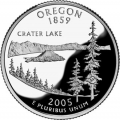For many registered nurses (RNs), pursuing a master of science in nursing (MSN) degree is the next logical step after completing a bachelor of science in nursing (BSN) program. The MSN program builds on the medical knowledge and clinical experience that RNs have acquired in the classroom and workplace. Graduate students have the opportunity to build expertise in a variety of advanced fields, including nursing administration, nursing anesthesia, nursing midwifery, nursing education, and family practice nursing.
Advanced practice registered nursing
Latest articles
Oregon’s nursing students have two distinct pathways for pursuing a bachelor of science in nursing (BSN) degree. The traditional BSN is a comprehensive program that prepares aspiring registered nurses (RNs) to enter the nursing profession. The RN-to-BSN program enables existing nurses with just an associate’s degree in nursing (ADN) to earn their baccalaureate degree, often while working at the same time.
Overview of the traditional BSN
The associate’s degree in nursing (ADN) is the most common licensure pathway for registered nurses (RNs). Because of its short duration, flexible schedule, small class size, and attractive career prospects, the ADN is a highly sought-after degree in Oregon.
ADN program overview
An aspiring licensed practical nurse (LPN) must be confident in the medical environment, passionate about caring for patients, and able to operate independently and effectively. LPNs administer medications, measure blood pressure and other vitals, and provide direct care to patients. To master these skills, Oregon’s LPNs must complete an education and training program at one of the state’s nursing schools.
LPN programs in Oregon
Although it can be pricey, a degree or certificate in nursing is an extremely worthwhile expense. Students of Oregon’s nursing schools should budget for several significant costs, including tuition, books, clinical supplies, living expenses, and transport. If the student is not a local resident, room and board must also be budgeted. Fortunately, Oregon’s nursing schools offer high-caliber programs that prepare students for success in the state’s rapidly changing healthcare industry.
The investment
Oregon is home to a dozen private institutes, colleges, and universities that offer accredited nursing programs. These private schools can be either non-profit organizations, like University of Portland and Linfield College, or for-profit entities, like Pioneer Pacific College and ITT Technical Institute. Both types of private schools tend to charge higher tuition than their public counterparts.
Public post-secondary institutions are funded and operated by the local state government. Residents therefore pay subsidized tuition fees to attend a public college or university. In addition to affordable tuition, state schools provide access to a large network of resources and a broad variety of program offerings.
Public universities in Oregon
More than 30 college campuses in Oregon offer accredited nursing programs. Most nursing programs focus on prelicensure education for one of three key roles: certified nursing assistant (CNA), licensed practical nurse (LPN), or registered nurse (RN).
Certified nursing assistant
Registered nurses (RNs) comprise two-thirds of the 5,000-person nursing workforce in Reno, Nevada. Feeding this workforce are local schools such as University of Nevada, Truckee Meadows Community College, and Carrington College. Through these schools, aspiring RNs may pursue either a two-year associate’s degree in nursing (ADN) or a four-year bachelor of science in nursing (BSN).
Other nursing roles and training programs
Nursing employment is on the rise. Each of the four critical nursing roles is projected to grow much faster than average over the coming decade. Certified nursing assistants (CNAs) will increase by 21 percent, while licensed practical nurses (LPNs) will grow by 25 percent. Registered nurses (RNs), the largest workforce in the healthcare industry, will experience robust 19 percent growth, and advanced practice registered nurses (APRNs) will increase by 31 percent. Nursing is certainly one of America’s most stable careers.
Nursing education programs










